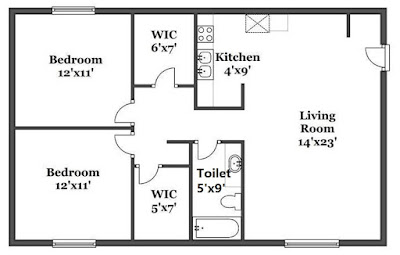Points to watch out in RERA
Points to watch out in RERA
Indian realty is highly characterized by late deliveries and high rate of inventory. Data states that 25 per cent of properties are delayed in India while inventory is more than 14-15 months. This laziness on the part of developers builds up a spiral where high prices chase low demand which further leads to the industrial crunch and opens up the way for illegal, unethical and unscrupulous practices in Real Estate sector. The real estate sector with more than 76,000 companies should have already had a regulatory body and a proper grievance redressal structure. While telecom sector in India with only a few major telecom players in power is under the canopy of the Telecom Regulatory Authority of India (TRAI), no such warden of the real estate sector existed until the government passed the Real Estate (Regulation and Development) Act (RERA) on November 1, 2016. Now that RERA is into force, the expectations of the sector are high. Here is what RERA has in store.
- 1. Section 20 of the Act emphasizes on the formation of regulatory authorities (Real Estate Appellate Tribunals) within one year of the law coming into force. These regulatory authorities would be hearing the complaints of both buyers and sellers and pass a decision within 60 days. This will encourage speedy resolution of disputes.
- 2.The carpet area has been redefined in the Act. Earlier, promoters used to include stairs, common passage areas and other spaces which used to be 20-30 per cent more than the actual flat’s area and buyers also did not use to question it because they are usually not aware of the carpet area. Now, it is mandatory to specify the actual carpet area.
- 3.All the projects either on land more than 500 sq. m or having at least eight apartments, including the one without completion or occupancy certificate must be registered. The developer, who is called a Promoter according to this Act, will be required to make an application for registration of each and every project separately. Thereafter, he must mention all the details on his webpage on the Authority’s website. These details would be available to the public, hence, promoting transparency and building trust.
- 4.The builder would be required to keep 70% of the funds collected from buyers in a separate escrow account and this amount would be used only for the purpose of the project in picture. This will avoid builders form diverting the money from one project to the other.
- 5.Information like sanctioned plans, along with specifications, approved by authority, stage wise time schedule of completion of the process, provisions for civic infrastructure like water, sanitation and electricity, must be shared by the promoter at the time of booking and issue of allotment letter.
- 6.In case, the project is developed on a leasehold land, the promoter would be liable to obtain the lease certificate, specifying the period of lease and certifying that all dues and charges regarding to the leasehold land have been paid.
- 7.The promoter shall be responsible to pay all outgoings including land cost, ground rent, municipal or other local taxes, charges for water and electricity, maintenance charges, mortgage loan, interest on mortgages, etc. until he transfers the physical possession of the property to the allottees. If the promoter fails to pay all or any of these outgoings, he would be liable to pay them even after the transfer of property. He would also pay the penalty if any and the legal charges if any legal proceeding would be held.
- These are the immense benefits that the Act provides for. After sales services on the part of promoter, a separate bank account for each project, specified carpet area, accurate project details and timely delivery of flats are the major benefits buyers would be receiving under the act. However, some loopholes of the Act are that it is not retrospective and there is no compulsory regulation for properties covering less than 1000 m sq. The projects might be delivered late against the aim of the Act since; a project cannot start before getting all clearances, which takes time.
- For more information visit to our website




Comments
Post a Comment